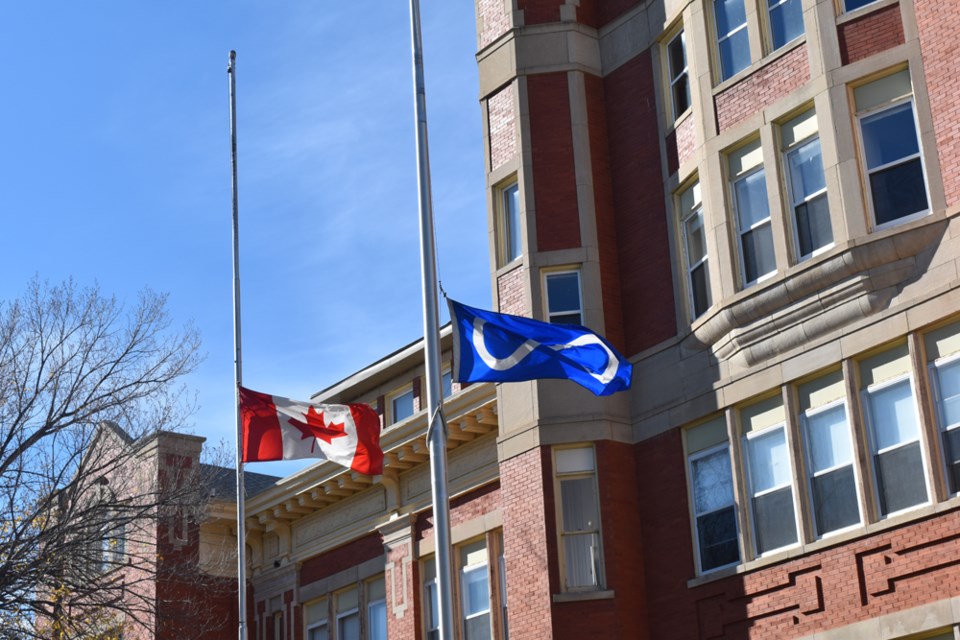SASKATOON — The Catholic Bishops of Saskatchewan have upped their ante to forge healing and reconciliation with victims and survivors of residential schools by joining the Canadian Conference of Catholic Bishops in apologizing for the past sins committed against Indigenous Peoples. The Catholic Bishops of Canada, last Sept. 24, released a statement expressing remorse and offering apology.
They had also expressed their financial commitment to help raise money that will be part of the $30 million, in five years, pledged by as part of their healing and reconciliation efforts with Indigenous Peoples. The funds raised focuses on the areas of healing and reconciliation, cemeteries on former residential school sites and education and cultural support.
“Two months ago, as we began a new Truth and Reconciliation Healing Response Appeal, we indicated that we would provide more information in September. As an expression of our commitment to fostering healing relationships with Indigenous peoples, the Appeal offers a way to respond to current needs, provide ongoing support for residential school survivors and their communities, and engage more deeply in our own ongoing commitment and response to the truth and reconciliation process,” the CBS said in a joint statement.
The statement was signed by Archbishop Donald Bolen (Regina), Most Rev. Bryan Bayda (Ukrainian Eparchial Bishop of Saskatoon), Archbishop Murray Chatlain (Keewatin-Le Pas), Most Rev. Mark Hagemoen (Bishop of Saskatoon), and Most Rev. Stephen Hero (Bishop of Prince Albert).
“Together, we hold at the heart of all of our steps the TRC Call to Action #61, which has been an ongoing guiding principle for all of us on this path, as it calls upon churches to establish funding for projects related to healing, culture and language revitalization, education and relationship-building.”
The CBS added the TRC Healing Response continues their efforts in joining the Indigenous communities in the journey listening to the stories of survivors, and those affected by the residential school’s legacy and the effects brought by colonization.
“We recognize that consultation and collaboration with Indigenous Peoples are vital, and we are committed to continuing these essential dialogues.”
They said the Catholic faithful in the province should expect more statements from the four dioceses and eparchy in the future on how the appeal will be approached in each region, based on the circumstances and abilities.
“May we continue to learn to walk together and to dwell peacefully on this land that the Creator has given us, in the words of treaties signed long ago, for ‘as long as the sun shines, the grass grows, and waters flow,’” ended their statement.
Hagemoen, who is part of the CBS, said in a separate statement that the past few months have been difficult for all Canadians with the issue of the residential school system opening old wounds and its effects still felt up to this day.
“As we have experienced the grief, dismay, and anger at further discoveries at cemeteries of former residential schools, Indigenous and non-Indigenous elders, leaders, and other citizens of our country are moved to greater expressions of empathy and solidarity to learn from this history, and to resolve to honour the grieving and healing process as we move towards true healing and reconciliation,” said Hagemoen.
The Catholic clergy gathered Thursday for a day of recollection with Fr. Ron Rolheiser, OMI, leading the reflection and prayer. A special Mass was also celebrated at the Holy Family Cathedral with the intention of healing and reconciliation.
Hagemoen said he hopes the diocese would continue to follow the path towards reconciliation and healing.
“The Gospel inspires us to walk in love and friendship as sisters and brothers of our One Creator, in His Son, Jesus Christ our common Saviour and Redeemer. I again ask us all to renew our ongoing commitment to building relationships of honour and respect, and to continue to ta concrete steps on this journey of healing that must involve all of us.”






